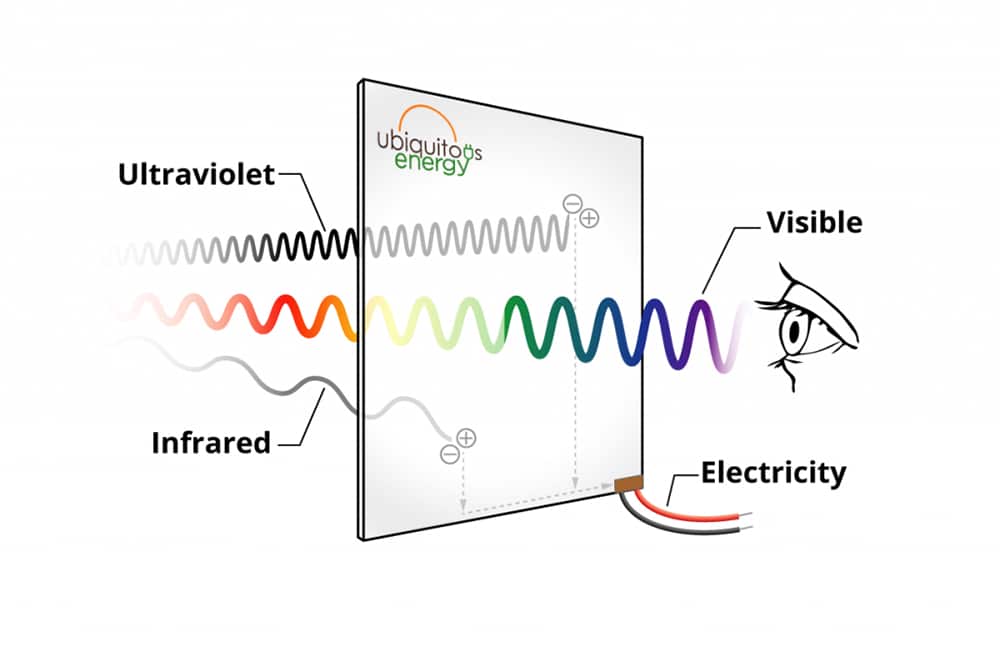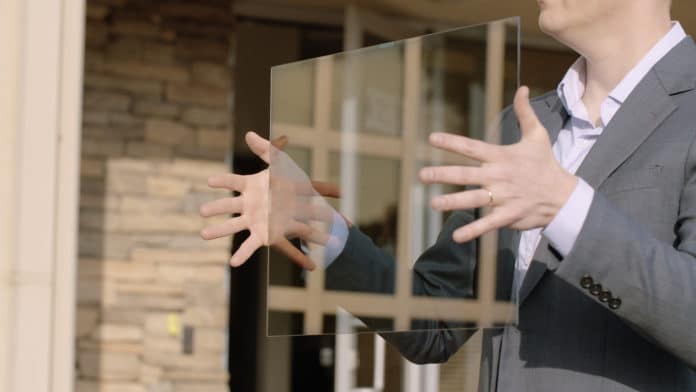With the continuous creativity of humans, solar batteries have “escaped” from the familiar gray photovoltaic cells. With surprising ways of “transforming,” solar cells not only help to utilize the energy from nature, but they also have applicability and high aesthetic efficiency.
Now, a young California company Ubiquitous Energy has developed a “ClearView Power window” with transparent solar cells that selectively transmit light visible to the human eye while absorbing only the ultraviolet and infrared light and converting it into electricity. The company, which emerged from the Massachusetts Institute of Technology in 2012, hopes to use that technology to turn virtually any everyday glass surface into a solar cell.
It is also claimed that the technology will help construction companies meet the requirements of local authorities to switch to energy resources that do not leave a carbon footprint. Besides, this glass can also be used for windshields and car windows, even for glass on smartphone screens.

The windows, manufactured using Ubiquitous Energy technology, are covered with an organic dye 1/1000 millimeter thick, which captures infrared and ultraviolet rays in the spectrum of sunlight and converts them into electricity. Energy from the surface of the windows can be stored in batteries or used to power homes and offices. The developers claim that it can generate up to two-thirds of the power compared to traditional solar panels.
The process of installing new solar windows is much more complicated and therefore, will cost a little more, about 20% more than conventional windows. But these additional costs, according to the developers, will compensate with the electricity that they generate.
The company wants its solar windows to complement traditional rooftop solar panels, not replace them. According to Ubiquitous Energy CEO Miles Barr, the combination of both solutions can provide full autonomy to even large buildings, which means that they will produce as much electricity as they consume.
Unlike conventional solar panels, which capture a wide range of solar radiation, Ubiquitous Energy windows remain completely transparent. Because the spray does not capture all the light, the performance of such windows is lower than that of traditional solar panels – during peak hours, they can make about two-thirds of the volume of a standard solar panel of the same size.
Ubiquitous Energy envisions a world in which every pane of glass, no matter how large or small, generates renewable electricity from sunlight; dramatically reducing the carbon footprint of houses, commercial buildings, and even small electronic devices, without compromising the clear, vibrant experience expected from traditional glass.
The company has patented its solar technology that selectively harvests invisible UV and IR light, the only way to achieve true transparency. It is one of several emerging products that harness solar energy, with different innovative ideas.
